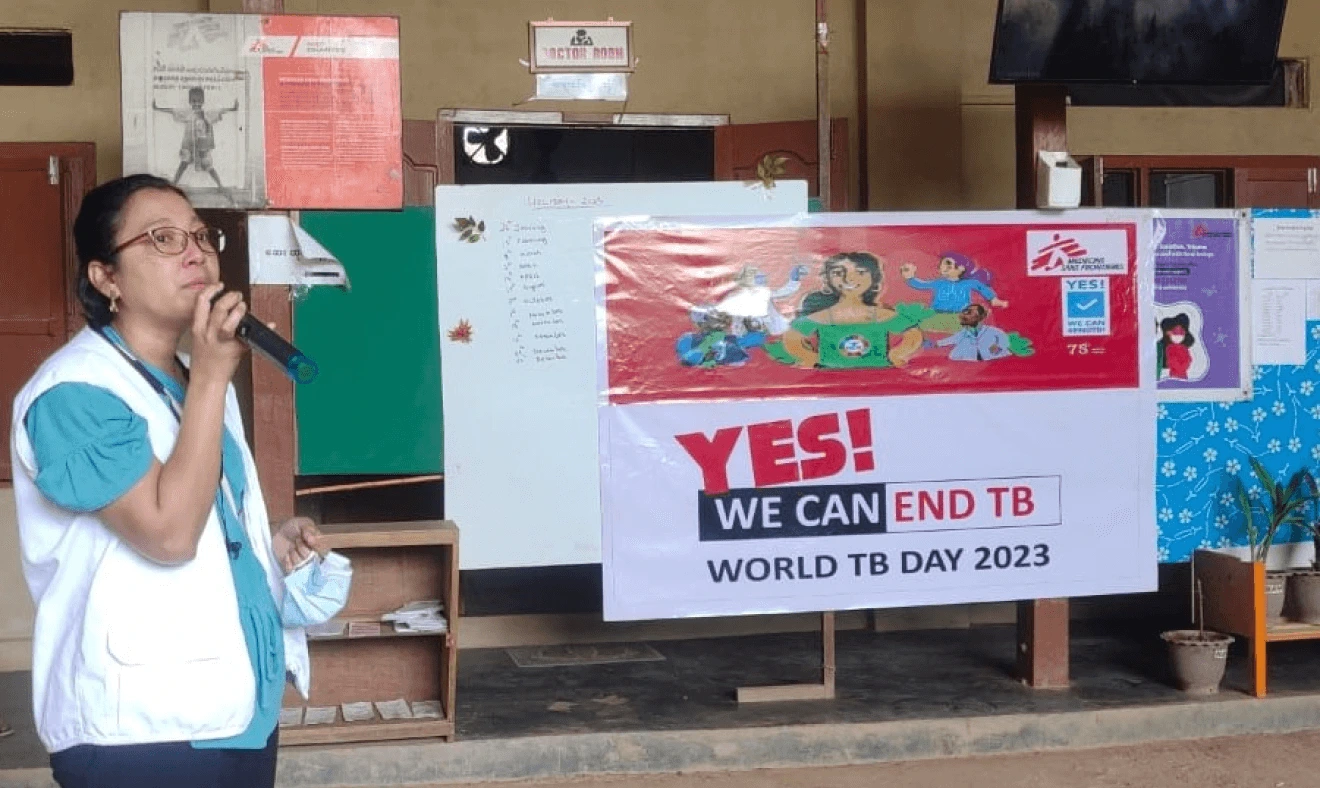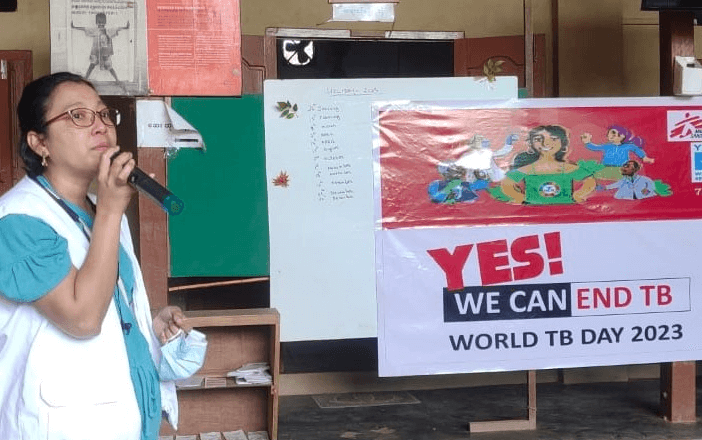December marks eight months since the conflict in Sudan began in Khartoum and quickly spread throughout the country. Since then, much of the country has been gripped by armed conflict, including devastating attacks on civilians, residential areas and healthcare facilities. This has forced more than 6.3 million people to flee their homes, including more than 5.1 million internally displaced and over 1.2 million seeking refuge in neighbouring countries where the provision of shelters, clean water and healthcare is not keeping pace with the massive needs. Hospitals in Sudan remain stretched to capacity, medical supplies are low, and in many parts of the country, humanitarian aid has come to a halt.
On top of that, the Sudanese authorities are also blocking lifesaving surgical supplies from reaching hospitals serving people in areas of Khartoum that are under the control of the opposition group Rapid Support Forces (RSF). This will likely cause more deaths of the sick and wounded, who already face huge challenges accessing medical facilities due to the violence in their communities.
Dr Christos Christou, International President of MSF, describes Sudan’s crisis as a “catastrophic failure of humanity” that is marked by the warring parties’ failure to protect civilians or facilitate essential humanitarian access, and by the dire neglect and shortcomings of international organisations in delivering an adequate response.
Challenges of providing surgical care in the bloodshed in Khartoum
Bashair Teaching Hospital is located in southern Khartoum where heavy fighting has been ongoing. It is one of the key medical facilities in the region and MSF has been supporting various departments of the hospital. Among all these services, surgical care is particularly crucial to the people living in this area.
Jessica Comi is an experienced operating theatre nurse. She flew to Khartoum in early May, less than one month since the conflict broke out, and joined the MSF team in the Bashair Teaching Hospital to provide emergency healthcare to the wounded men, women and children. Despite having worked in conflict setting many times, she says this assignment in Sudan was her toughest one yet.
“(The team) found a hospital in South Khartoum – Bashair Teaching Hospital – which was virtually empty and being run by volunteers,” Jessica says. “When the conflict started, a lot of the hospital staff had left, so volunteers had stepped in to restart activities. They got in contact with MSF and asked for help.” Jessica and the team were asked if they can reopen the operating theatres in less than a day.
Experiencing supply blockage amidst shortage
Quickly resuming the surgical capacity of an abandoned hospital to cope with the influx of patients with complex war wounds was already not easy, but the difficulties of getting supplies made things even more challenging.
“The biggest problem we had was getting enough fuel for the generator so we could have electricity. The head of MSF in Sudan and the drivers spent a lot of time driving around Khartoum during the fighting trying to source fuel to keep us going,” Jessica says. “It was like Christmas for us when they came back with boxes of supplies. We’d open them up and it would be like: ‘Wow, examination gloves! Disinfectant for instruments!’ ”
In the eight weeks she was there, 525 surgeries had been conducted on 485 patients. From mid May to mid October, MSF’s surgical team has performed more than 3,000 surgical procedures.
However due to the blockade on surgical materials being transported from Wad Madani to south Khartoum for over a month, the team had to suspend life-saving surgical activities at the Bashair Teaching Hospital. Adding to the severity of the situation, travel permits of humanitarian workers – including medical personnel – are also being denied.
MSF head of emergency response for Chad and Sudan, Claire Nicolet, stated that the ban on surgical supplies entering southern Khartoum is a ruthless tactic which must be immediately reversed. “If we continue to be denied permission to bring surgical supplies to our hospital, soon they will have no options at all.”
Maintaining the lifeline for sick children and pregnant women
Besides Bashair Teaching Hospital, Turkish Hospital, located in southern Khartoum, also has an important role in responding to local medical needs. Since mid-May, MSF has been supporting the hospital. While its original purpose – being the only hospital serving as the only functioning paediatric and maternity department – has always been to provide specialised health care for sick children and pregnant women, MSF has managed to also provide surgical care to some war wounded patients there. And with Bashair Teaching Hospital suspending its surgical support in mid-October, the Turkish Hospital is currently one of the only facilities in southern Khartoum with a fully functioning operating theatre.
The outgoing Head of Mission in Sudan Dr Mego Terzian summarises the situation of the Turkish Hospital in Khartoum in September. © Mohammad Ghannam / MSF
As the conflict broke out and the level of violence escalated, many health workers were forced to leave the city. Now the hospital is only able to provide the most urgent forms of health care, mainly safe deliveries and emergency C-sections for pregnant women, and intensive care for children who are very sick. “The health system has almost completely collapsed in Khartoum and there are no primary healthcare activities,” Dr. Mego Terzian, then MSF head of mission in Sudan, says.
Responding to the looming infectious diseases
The shortage of vaccinations and sanitation facilities puts the children at risk of numerous preventable infectious diseases. Malaria, measles, meningitis, cholera and pneumonia are common illnesses, while medical staff have noted increases in cases of diarrhea and dehydration due to the poor drinking water quality.
Amid the challenging situation, the mortality rate in the hospital was under two per cent as of September, which is a big success for the medical and logistics team considering the abject conditions they have been working under.
“Despite the problems they face every day – the lack of electricity, water, and oxygen, and sometimes the lack of specific medications for anaesthesia and for blood transfusions – we have been capable of maintaining the team there and continuing to deliver emergency health care for the population,” Terzian concludes.
But on the surgical care side, the MSF team in the Turkish hospital recently responded to two mass casualty incidents on 12 and 13 November, receiving 128 wounded. After completing these surgical procedures, our remaining supplies would last less than a month. If we are unable to bring in more supplies soon, the operating theatre in the Turkish Hospital will also have to close its doors.
Returning to South Sudan – but with her children dying en route: “My house will still be half full.”
The on-going conflict in Sudan forced many people to flee, including South Sudanese who went to Sudan to look for job opportunities and a better life some time ago. Now on their journeys back to South Sudan, those returnees suffer from homelessness, illness and malnutrition.
Marta and her construction worker husband had six children all living in Khartoum, Sudan, after migrating there from South Sudan. Her family’s lives completely changed in April. “Our home was full, and children were running and playing all over the place. Everything was okay until we heard the bombs and gunshots; neighbours and people we knew were dying.”
Facing the dilemma of fleeing, and losing the loved ones
To balance the safety of her children and financial burden, Marta and her husband decided that she and her children would leave to return to South Sudan, while he stayed behind. They took a bus, and moved from one displacement camp to another.
“As we arrived in Alagaya camp within Sudan, the children started to fall sick; they had measles. The baby was the first to get a fever; after one week, the three-year- old and later the nine-year-old. They all died,” she mourned. “I had to bury my three children far from home. Far from anyone they knew. Far from where we were going.”
Finally, Marta and her remaining children arrived at Renk, a small town of South Sudan close to the border, but she found that her eight-year-old son and five-year-old daughter suffered from malnutrition.
From July to early October, the MSF medical facility in Renk had admitted 232 patients for malnutrition and treated 282 cases of measles requiring hospital care. With the double impact of measles and malnutrition, our paediatric hospital in Malakal that receives referred child patients faced a very high 5.95% mortality rate for a certain period.
Although Marta’s children will recover after staying in our feeding centre, the future for her family is still uncertain. “We would need a lot of courage and help to survive the coming difficult days to start a new life in South Sudan. My house will still only be half full.”
Responding to a spin-off crisis in Chad
El Geneina is the capital of West Darfur State and has been grappling with decades of violence and displacement. In the initial days of the current conflict, El Geneina remained calm, suggesting that the violence might not reach it, but warfare did has engulfed the place since late April. For the past few years, MSF has been supporting El Geneina's Teaching Hospital, the main health facility in West Darfur, which was almost deserted when conflict intensified. But due to the volatile situation in the area, MSF can no longer carry out medical activities in West Darfur, and only is able to support the hospital in terms of medical supplies, equipment and financial incentive for the staff.
Cross-border support for refugees fleeing West Darfur
Despite not being able to run our own medical activities in West Darfur, we scaled up our response in Adré, a Chadian small town on the border with Sudan, to provide medical services to the refugees fleeing western Sudan. Over seven months into the conflict, our teams working there still face immediate and major increases in the number of people arriving in the region. “In the first three days of November, we have seen more new arrivals of Sudanese refugees than during the whole previous month; about 7,000 people crossed the border,” explains Stephanie Hoffmann, MSF outreach coordinator, meaning the clashes in West Darfur has reached a new level of intensity.
In response to the influx of vulnerable people seeking safety, we vaccinate children against measles, screen for malnutrition, and refer those in need of urgent specialised healthcare directly to Adré hospital, where they are being treated by MSF and staff from the Chadian Ministry of Health. We also offer mental health support to people in distress at the crossing and has installed a water tank to provide safe drinking water after gruelling journey.
“Despite the collective efforts of their local communities, authorities and humanitarian organisations, the humanitarian response doesn't yet match the magnitude of the crisis in eastern Chad, which is also putting a strain on vulnerable host communities,” explains Claire Nicolet, head of MSF emergency response for Chad and Sudan. “We continue to call for an immediate scale-up of humanitarian aid to help the most vulnerable, both refugees and Chadians, and to ensure access to basic services such as water, healthcare, shelter and food.”





